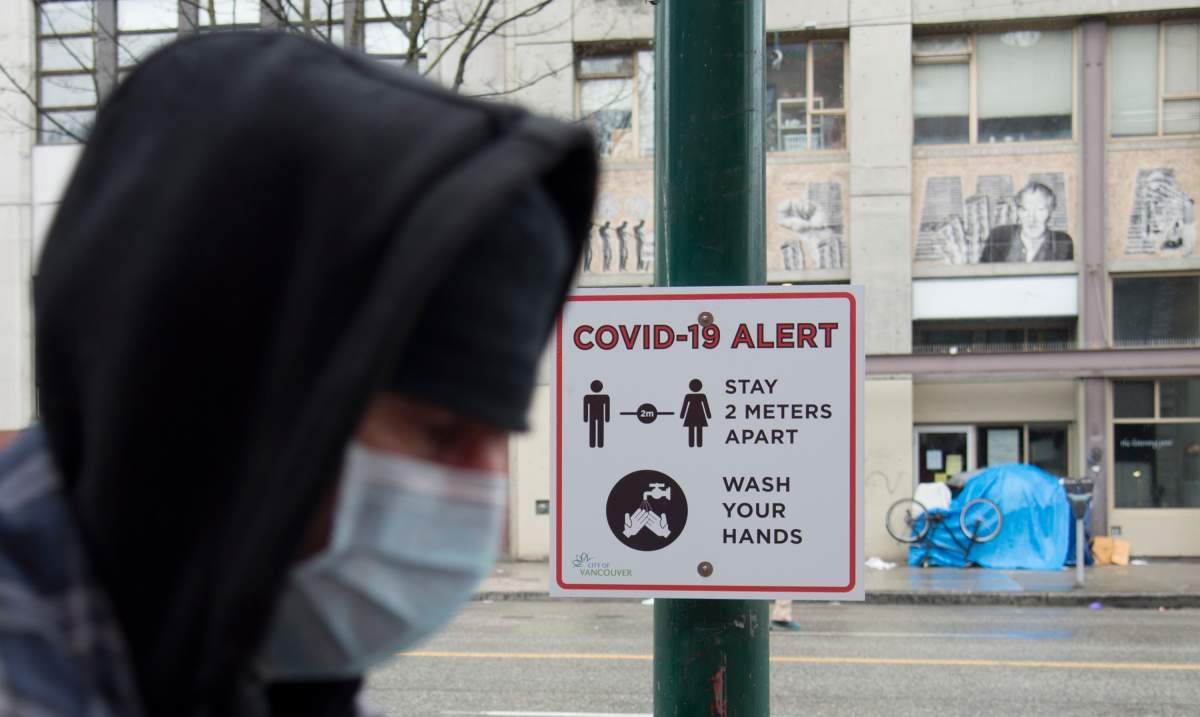Vancouver Coastal Health’s chief medical officer, Dr. Patricia Daly, says fewer drug users are visiting overdose prevention sites due to the COVID-19 crisis, which will lead to a spike in deaths.

The Downtown Eastside recently saw eight overdose deaths in a week, and Daly says there is growing concern that people are dying alone in their rooms.
“I’m concerned that because of fear around COVID-19, which we’ve only really seen at very low levels in that community, that people are not accessing life-saving services such as overdose prevention and we’ve actually seen a little bit of a spike of overdose deaths in March and April,” Daly said.

There are normally 6,000 visits a week at overdose prevention sites. Since the pandemic, that number has dropped to 2,000 due to concerns over exposure from both operators and visitors.
Work is being done to change that through education.

Get weekly health news
“The advice about staying two metres apart, that’s general recommendations,” Daly said. “But if you need life-saving service that requires you to be closer than that such as an overdose prevention site, then obviously you should make use of those life-saving services.”

No one in the Downtown Eastside has died from COVID-19, so the greater concern is death by overdose in the area.
There have been a handful of cases where someone has tested positive for the novel coronavirus in the Downtown Eastside. The testing rate in that community is around 40 per 1,000 people, more than double the number in the rest of the health authority.
“Of the people we test, and these are all people who have some symptoms of COVID-19, only 1.6 per cent in the Downtown Eastside have been positive,” Daly said.
“That means that we’ve had only a handful of people with COVID-19.”
Daly says the number of cases may be due to the fact that the Downtown Eastside is a relatively closed community with no people returning from travel, which is how the virus was introduced in many places.
“If we see cases it’s likely to be either through workers or others who are new to the community bringing in the virus, and if we can identify it early, we can prevent it from spreading,” Daly said.

Shelters have also been thinned out and people moved to temporary spaces. Access to essential care and services also remains a focus in an effort to stay ahead of the pandemic.
“If you’ve got a vulnerable population, you want to be able to identify any introduction of the virus before it starts to spread so we’re trying to be very proactive in our testing,” Daly said.










Comments
Want to discuss? Please read our Commenting Policy first.